
Is your diet to blame for your sleep problems? Maybe you already have a great mattress, but you’re not sleeping well. The fastest way to better sleep is through simple food choices. The good news is, you can get started right now with getting acquainted with the foods you should have in your own kitchen.
The nutrients we take are like individual pieces the body needs to solve the puzzle of keeping us healthy. Sickness, poor functioning, and inability to sleep are all due to missing pieces in that health puzzle. Those essential pieces our bodies need include water (of course), micronutrients (vitamins and minerals), macronutrients (proteins, fats, and carbohydrates), fiber, prebiotics, and probiotics.
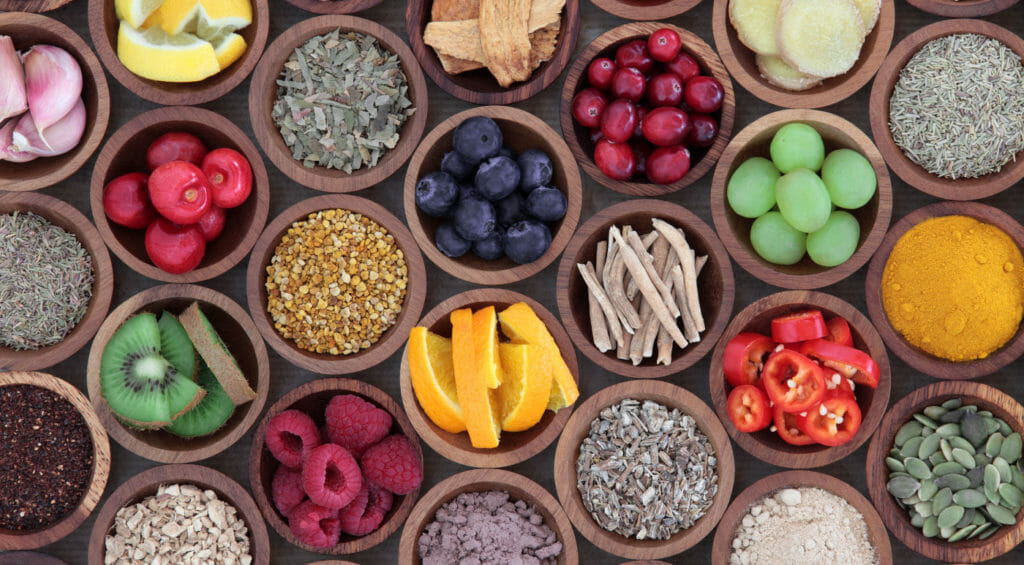
So, instead of focusing on one source of sleep nutrients, what you should be doing is focusing on getting all of the nutrients you need.
How Some Foods Work To Boost Your Sleep Cycle
Foods that help you sleep improve your sleep quality by changing your internal clock. A growing body of research shows that the type, the amount, and the timing of food you consume influence sleep-regulating neurotransmitters such as tryptophan, serotonin, GABA, melatonin.
But what foods should you be consuming? We’ve made a list.
7 Foods Types that Help you Sleep
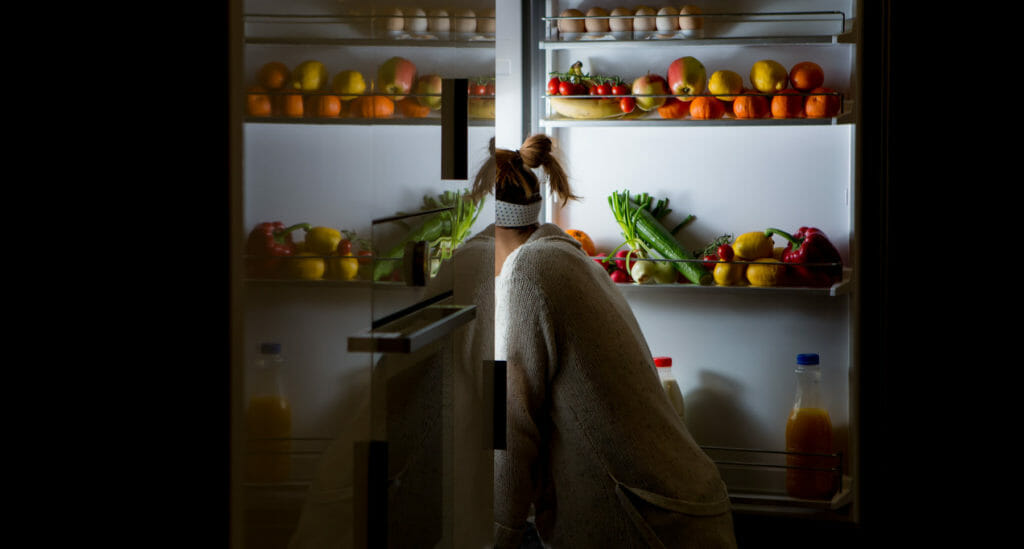
1. Tryptophan-rich Protein Foods
The body needs tryptophan to produce serotonin. Serotonin converts into sleep-inducing hormone, melatonin. Good food sources of tryptophan include leafy green vegetables, peanuts, turkey, chicken, fish, milk, pumpkin seeds, sesame seeds, tofu, cheese, and soy. 250mg of dietary tryptophan is adequate to positively impact your sleep.
Proteins can take up to four hours to digest. Therefore, eating a large, protein-rich meal right before bed will take the energy that was meant for the sleep cycle to digest the food. A better solution is to allow at least four hours between your last meal and bedtime. Also, you can significantly increase your tryptophan by including these foods throughout the day as part of your diet.
2. Carbohydrate-rich Foods
Carbohydrates increase tryptophan concentration in the body. Since the control center of your sleep cycle is in the brain, tryptophan’s availability in the brain helps to manufacture serotonin and, ultimately, melatonin. However, a natural brain protection called a “brain barrier” makes it hard for things to come through your brain. Carbohydrate consumption increases insulin which allows tryptophan to cross through that brain barrier.
Whole foods, like natural carbohydrates, are more nutrient dense than refined processed carbohydrates. Research shows that eating excessive refined processed carbohydrates can lead to various health problems. Healthy carbohydrates include vegetables, brown rice, whole-grain pasta, beans, whole wheat bread, whole oats, buckwheat, millet, whole rye, whole-grain barley, and whole-grain corn.
3. Tart Cherry Juice
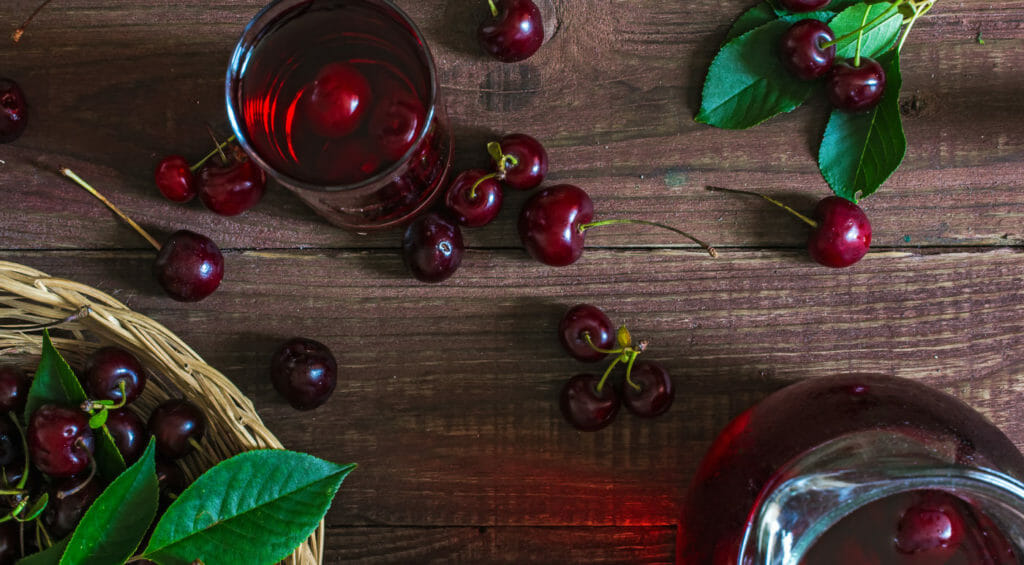
While this isn’t technically a “food,” cherries are a source of valuable nutrients. Tart cherries contain high amounts of melatonin and a wide range of phenolic elements that have both antioxidants and anti-inflammatory properties.
But the cherry’s juice form has its own benefits. A study found that consuming 60 ml of tart cherry juice increased melatonin levels, increased sleep efficiency by 82.3%, and reduced day time napping. You can purchase tart cherry juice from your local grocery store. Taking Tart cherry juice in the evening is a great way to reduce inflammation while boosting your melatonin to fall asleep faster.
4. Kiwi Fruit
Kiwifruits are nutritionally dense and contain a range of nutrients that benefit sleep health including serotonin, Vitamin C, folate, Vitamin K, folate, carotenoids, beta-carotene, lutein, potassium, copper, and fiber. Folate deficiency can be serious and even cause insomnia. Folate exists in other foods but often is destroyed by cooking or processing, but folate in kiwi is likely consumed in raw form.
The serotonin concentration in Kiwi helps the body to manufacture melatonin to help initiate sleep. No wonder a recent study reported improvement in sleep quality after 4 weeks’ consumption of Kiwi 1 hour before bed [6]. You can count on Kiwi when you are suddenly hungry an hour before bed. It is light, low in fat, and won’t tax your digestion. I like to cut my kiwi in half, then scoop it out with a spoon for a refreshing and restorative bite.
5. Foods High in B Vitamins
We talked about how tryptophan converts into serotonin and ultimately converts into Melatonin, your sleep-inducing hormone. Vitamin B6 plays a role in converting Tryptophan into serotonin. Sources of Vitamin B6 include salmon, lean chicken breast, fortified tofu, sweet potatoes, bananas, avocados, and pistachios.
6. Magnesium-rich Foods
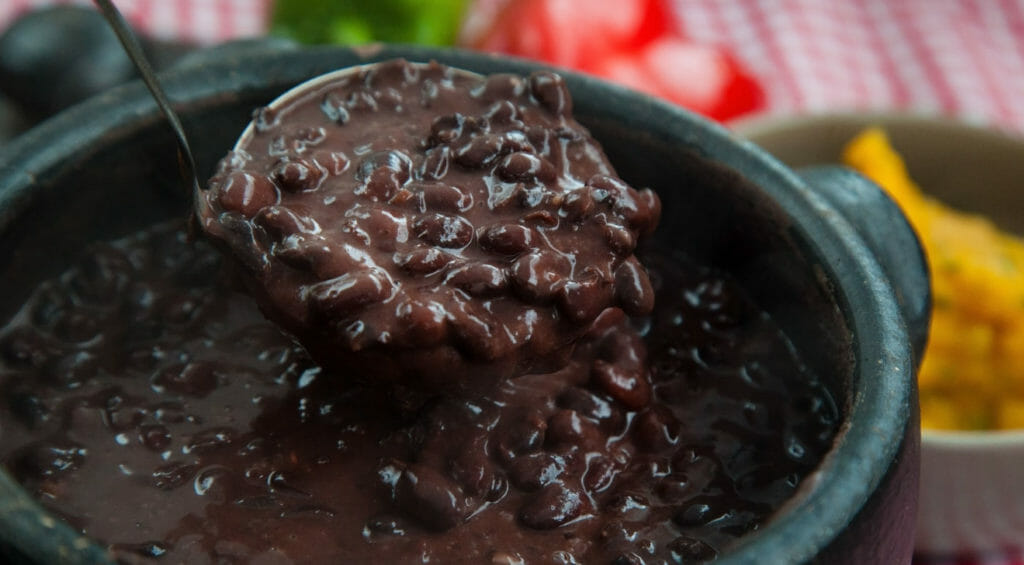
Magnesium helps to relax muscles while reducing stress to enhance melatonin production. Sources of magnesium include spinach, dark chocolate, pumpkin seeds, almonds, black beans, and bananas. But the highest source of magnesium is Swiss Chard, with 39% of the daily value. Since magnesium is responsible for many bodily functions and handling stress, it can get depleted very quickly. It doesn’t hurt to ask your doctor to do a blood test to check your levels.
7. Antioxidants Foods
Antioxidants count as foods that help you sleep because they manage free radicals and inflammation while promoting sleep hormones. Genetic studies show that as we age, we undergo cellular damage, also called oxidative stress which produces free radicals. Other things that increase oxidative stress and free radicals include stress, toxins such as pesticides, food coloring, smoking, fried foods, and highly refined sugars.
Antioxidants are foods that neutralize free radicals and protect the body from stress while promoting sleep and overall well-being. Main sources of antioxidants include Vitamin A, C, E, and Selenium.
But let’s get more specific…
Beta-carotene-rich foods help you sleep
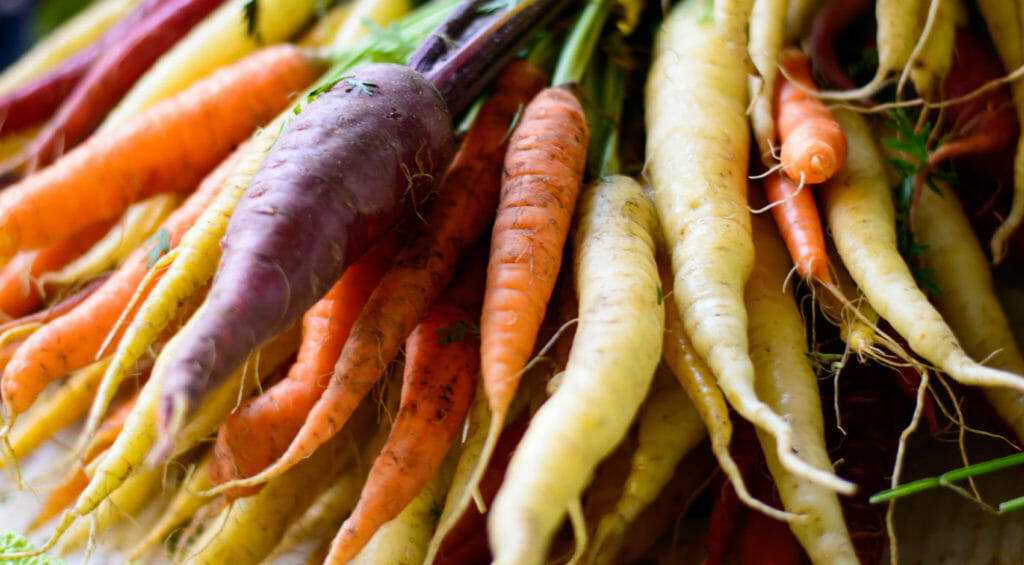
Beta-Carotene is a precursor for Vitamin A and is present in carrots, pumpkin, squash, spinach, broccoli, melons, peaches, apricots, and sweet potatoes.
Foods High in Vitamin E
When Vitamin E is abundant in the body, it is stored inside the cell where it can directly act on any cellular damage. Vitamin E is also important for strengthening the immune system, forming red blood cells and regulating clotting. Sources include sesame seeds, sunflower seeds, fish oil, and vegetables such as spinach, broccoli, and sweet potatoes.
Foods High in Vitamin C
The body needs Vitamin C in order to fight cellular damage, strengthen the immune system and absorb iron. Vitamin C also plays a role in collagen formation to keep tissues, bones, blood vessels, and intestinal walls healthy. Sources of Vitamin C are citrus fruits, bell peppers, cabbage, spinach, broccoli, kale, red or yellow sweet pepper watercress, tomatoes, melons, kiwi, and strawberries.
Selenium as a Key Component of Foods that Help you Sleep
This is a protective mineral against free radicals and carcinogens. Selenium is found in sunflower seeds, Brazil nuts, tuna, cod, herring, chicken, oysters, molasses, mushrooms, cottage cheese, cabbage, and liver. Selenium is also important for thyroid function, stress management, mental wellness, protecting your immune system, and preventing against heart disease.
Other sources of antioxidants include blueberries, leafy green vegetables, blackberries, prunes, red apples, cranberries, strawberries, and red kidney beans.
Action Steps
Studies in the Journal of Magnesium Research and International Journal of Clinical Chemistry have shown that deficiencies in magnesium, selenium, Vitamin C, Vitamin D, B3, B6, B12, omega-3, potassium, melatonin, and calcium cause sleep disturbances. Most deficiencies can be seen on blood tests. I often help my clients with a preliminary assessment in order to determine if they need a blood test.
But first, evaluate what food you have in your own kitchen and, more importantly, what nutrients you are missing in your diet.
Additional Resources on Products that Help you Sleep
Best Sleep Products to Improve Your Health
Sources Used:
- American Academy of Sleep Medicine (2005). ICSD2 – International Classification of Sleep Disorders. Diagnostic and Coding Manual. 2nd. Westchester, Ill: American Academy of Sleep Medicine; 1-32.
- Daniel NVS, Zimberg IZ, Estadella D Garcia MC, Padovani RC, Juzwiak CR ( 2019). Effect of the intake of high or low glycemic index high carbohydrate-meals on athletes’ sleep quality in pre-game nights. [PubMed]
- Halliwell, B.; Gutteridge, J.M.(2015). Free Radicals in Biology and Medicine; Oxford University Press: Oxford, UK.
- Howatson, G.; Bell, P.G.; Tallent, J.; Middleton, B.; McHugh, M.P.; Ellis, J. (2012). Effect of tart cherry juice (Prunus Cerasus) on melatonin levels and enhanced sleep quality. Eur. J. Nutr., 51, 909–916. [CrossRef]
- Tahara, Y.; Shibata, S.( 2014,). Chrono-biology, Chrono-pharmacology and Chrono-nutrition. J. Pharmacol. Sci. 124, 320–335. [CrossRef]
- Lin, H.H.; Tsai, P.S.; Fang, S.C.; Liu, J.F. (2011). Effect of kiwifruit consumption on sleep quality in adults with sleep problems. Asia Pac. J. Clin. Nutr. 20, 169–174.
- Roberts SB (2000). High-glycemic index foods, hunger, and obesity: is there a connection? 58(6):163-9. [PubMed]
- Rónán Doherty ,Sharon Madigan ,Giles Warrington and Jason Ellis (2019). Sleep and Nutrition Interactions: Implications for Athletes. Nutrients. 11(4), 822 [MDPI]
- Zhao, K., Luan, X., Liu, Y., Tu, X., Chen, H., Shen, H., Qiu, H., Zhu, Z., & He, J. (2017). Lower serum 25-hydroxy Vitamin D concentrations in chronic insomnia patients and the association with poor treatment outcome at 2 months. International Journal of Clinical Chemistry, 475, 147-151. doi: 10.1016/j.cca.2017.10.024.